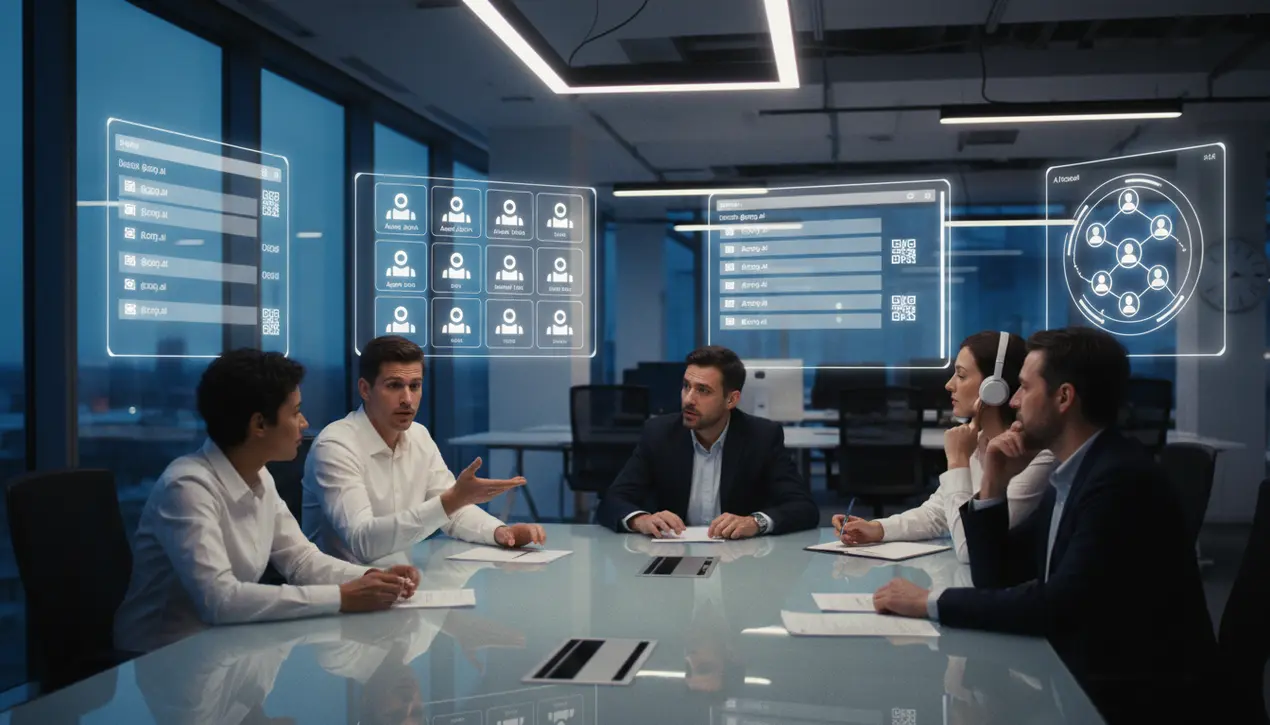
AIenterprise aiCorporate Adoption
AI workers getting their own email, ID and Teams accounts
MI
Michael Ross
3 hours ago7 min read
The concept of the digital coworker is rapidly evolving from science fiction to corporate reality, with Microsoft's development of 'Agentic Users' representing a fundamental shift in how artificial intelligence integrates into the workplace. These aren't mere tools for automating tasks; they are autonomous entities equipped with their own corporate identities—distinct email addresses, Microsoft Teams accounts, and company IDs, allowing them to attend meetings, edit shared documents, and communicate directly with human staff.This move from AI as an assistant to AI as a peer raises profound questions that echo the foundational debates in science fiction, particularly Isaac Asimov's Three Laws of Robotics, which were designed to govern the behavior of intelligent machines. The central dilemma now isn't about preventing physical harm, but about establishing a new framework of corporate and ethical responsibility.Who manages an AI employee? To whom is it accountable when a scheduling error cascades into a missed multi-million-dollar deadline or an autonomous communication violates compliance protocols? The corporate world's preparedness is alarmingly low; a recent Deloitte survey found that only 23% of organizations on the AI frontier feel highly prepared to manage the associated risks, and Gartner projects that 40% of such agentic projects could be canceled by 2027 due to inadequate controls and unclear value. This isn't just a technical challenge—it's a governance crisis in the making.The potential benefits are immense, promising to liberate human workers from the drudgery of administrative grunt work, potentially boosting productivity and allowing a greater focus on strategic, creative endeavors. Yet, this very liberation carries the risk of deepening the AI-driven displacement that economists at Stanford’s Digital Economy Lab note is already having a 'significant and disproportionate impact on entry-level workers.' As Microsoft positions 2025 as the year companies stop experimenting and start building their operational structures around AI, we are witnessing the birth of a new, hybrid workforce. The success of this integration will depend less on the sophistication of the algorithms and more on our ability to construct robust, transparent, and ethically sound management systems for our non-human colleagues, ensuring that the pursuit of efficiency does not outpace our commitment to responsible innovation.
#Microsoft
#AI agents
#workplace automation
#AI employees
#Agentic Users
#enterprise software
#AI risks
#featured
Stay Informed. Act Smarter.
Get weekly highlights, major headlines, and expert insights — then put your knowledge to work in our live prediction markets.
Related News
Comments
Loading comments...
© 2025 Outpoll Service LTD. All rights reserved.